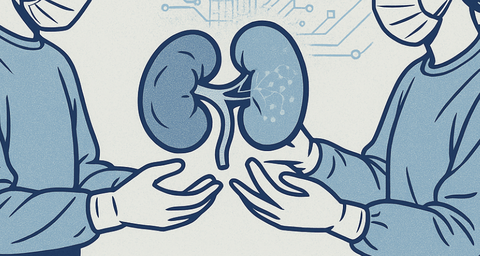Oct 20, 2025
New approach predicts earlier when a donor kidney may fail
In brief: When patients receive a kidney transplant, it is crucial to detect early on whether the organ will remain stable or if complications may occur later. This is exactly where our new study comes in: instead of looking at all data only once, we use artificial intelligence to predict the risk across different time periods after transplantation – for example in the first three months, after one year, or even further down the line. This allows clinicians to intervene sooner and tailor treatments more precisely.
Details on our latest work in Frontiers in Artificial Intelligence
“Phase-specific kidney graft failure prediction with machine learning model”
🔗 https://www.frontiersin.org/journals/artificial-intelligence/articles/10.3389/frai.2025.1682639/full
In this study, we developed time-dynamic, phase-specific machine learning models to predict the risk of graft failure across defined intervals after transplantation: 0–3 months, 3–9 months, 9–15 months, 15–39 months, 39–72 months
Our models show particularly strong performance in the mid-term (e.g., 9–15 months), achieving a high predictive accuracy (ROC AUC ≈ 0.92). The results highlight the value of continuously updated clinical data compared to purely static approaches.
International collaboration – with contributions from guest researchers from Kazakhstan
During their research stay in Dresden, Ainur Yerkos and Zholdas Buribayev contributed significantly as guest scientists. The study emerged from close collaboration and is an excellent example of international research efforts between Kazakhstan, Japan, and Germany.
Why is this work important?
- Traditional models often do not adequately account for temporal dynamics.
- Our phase-specific models enable more targeted decision-making along the clinical pathway.
- In the future, such predictions could be directly integrated into follow-up care to personalize patient management.
A big thank you to all contributors and partner institutions!

